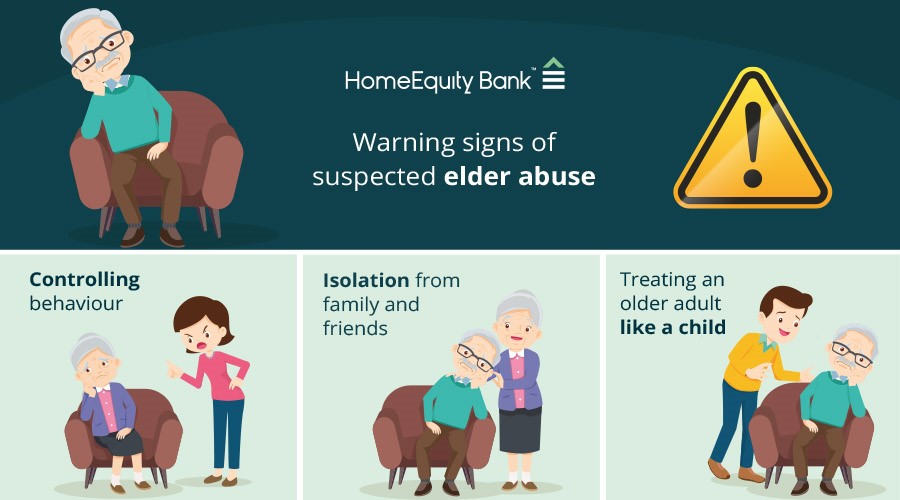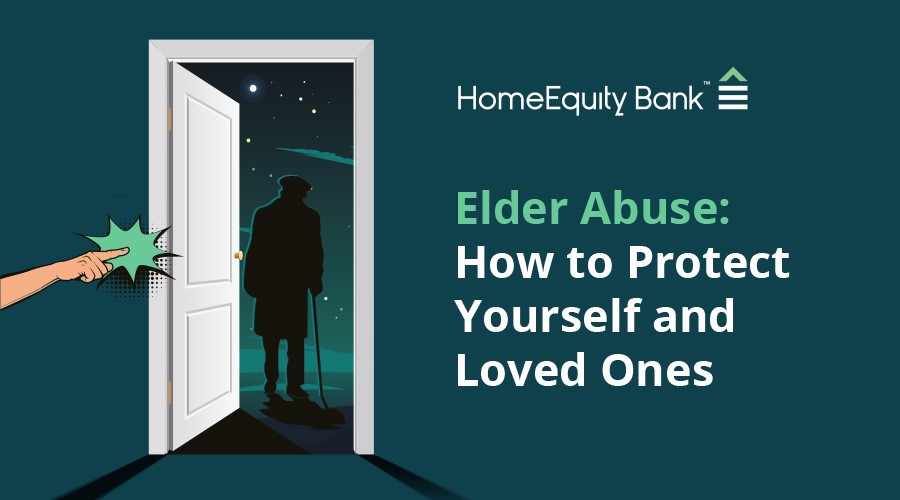By Joyce Wayne
The belief that elder abuse is an issue that only happens to others, far removed from our lives or the lives of our loved ones, is a comforting assumption. However, the reality is that it can and does happen. Elder abuse is more pervasive than I ever imagined, and it’s everywhere, among the wealthiest and the poorest. In rural and urban environments, it’s often unfolding right before our eyes, and it takes serious concern and knowledge about the signs of elder abuse before it can be remedied.
Allow me to share the story of a person I’ve known most of my life. He was a doctor, an investor and an ardent golfer. Last year, his life took an unexpected turn as he began experiencing falls during his daily constitutional. One fall led to another. Eventually, he was diagnosed with dementia. He lives with his wife in a gorgeous apartment and have everything they need to be happy. But my friend has entirely lost his agency. He has no control over his daily life, finances, and even basic communication over who he sees or speaks to on the telephone. He became fearful of one of the significant people in his daily life.
I began to notice the problem when I couldn’t speak with him on the phone after months of trying. My birthday card went unnoticed, and his other friends and family began reaching out to me, saying they’d phoned him, but to no avail. He could not be reached.
Last week, at my wit’s ends, I boarded a train to visit him, a six-hour ride from my home near Toronto. In certain respects, his situation is dire. While he receives care most days, enjoying three meals a day and having someone to watch over him, not all days are the same. Recently, he took a tumble and hurt his head, which he showed to me.
At times, he is quite lucid, and we can talk openly about his plight. Other times, he repeats himself endlessly, one of the surest signs of dementia or any form of cognitive impairment. Before arriving at his home, I made sure to call an Elder Abuse helpline, something I never imagined I would do for my brilliant and accomplished friend. The social worker at the other end of the line was an enormous help, asking pointed and comprehensive questions. I answered as best as I could. By the conclusion of our calls, she clearly said that my friend is a victim of elder abuse, physical, mental and financial.
I’ll admit, it was not the answer I expected nor wished to hear. Yet, by the time we finished our conversations, and in the weeks that followed, I understood how elder abuse could be camouflaged by those surrounding the victim, or even by misunderstandings, or by the inability or desire to help. In my friend’s case, isolation was a huge issue. He was cut off from everyone he knew, with no means to contact his own family. Other people ran his banking and investments, and he seemed to have little or no idea where his money was going.
Last June, as reported by CTV News, the Montreal Police paid a visit to thousands of Montreal seniors in an effort to prevent elder abuse. The “Visit a Senior” operation, now in its fourth year, involves police officers, CIUSSS representatives and community workers reaching out to individuals who may be abused or need health and social services, according to a statement from the Montreal police. During this year’s operation, over 300 people went door-knocking to visit over 4,800 people—3,000 of whom were aged 65 and above. Depending on the situation, they offered food aid, access to a helpline, friendship services, and help to get to appointments, among other supports.
A 2019 provincial report on elder abuse revealed that nearly 6 percent of seniors living at home in Quebec reported being mistreated in the past year. “With the aging of the population set to accelerate over the next few years, elder abuse is a major public health issue that needs to be tackled collectively,” said Marick Bertrand, regional coordinator specializing in the fight against elder abuse at Montreal Public Health. Last month, the province began deploying the Elder Mistreatment Helpline (LAMAA) in all regions of Quebec. The line serves as a gateway for anyone who is experiencing or witnessing abuse and wants to be directed to the right resource.
The telephone service is available seven days a week, from 8 a.m. to 8 p.m., at 1 888 489-2287.”
During this holiday period, when you visit family and friends, I urge you to be aware of signs of elder abuse and to contact a helpline in your city or region to try to correct the situation.
The Government of Canada website is an excellent source of information. It discusses who are the abusers of older adults, who are at risk, and how to recognize elder abuse, plus many other topics related to the abuse of elders.
I was particularly interested in the section about “Warning Signs,” which includes:
Warning Signs of Suspected Elder Abuse

If you suspect abusive behaviour, look for:
- Controlling behaviour:
- Not allowing older adults the right to freely make decisions and choices
- Refusing to allow them to visit with anyone alone
- Isolating them from friends and family
- Using the “silent treatment” to control them
- Not allowing them to use the phone
- Disregard for their privacy
- Locks on the outside of the bedroom door
- Reading or withholding their mail
- Handling all of the money
- Blaming the older adult for the abuse: “It’s your fault that I pushed you!”
- A strong sense of entitlement: “I can do what I want! You owe me!”
- Treating the older adult like a child: “Do what I tell you!”
- Frequent arguments, name-calling calling or threats
- Leaving a dependent person alone for long periods of time.
I witnessed or heard about many of these signs when visiting my friend. In this instance of elder abuse, I’m trying my best to help, along with the authorities in his city of residence.
For more information: For more information
To learn more about what the Government of Canada is doing for seniors or to find services and support in your province or territory, visit programs and services for elderly or call 1-800-O-Canada (1-800-622-6232, TTY: 1-800-926-9105)
































